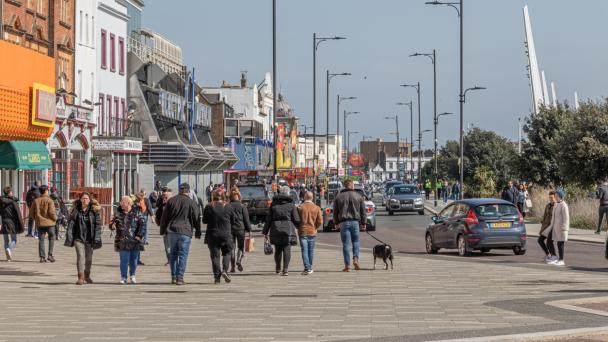Using health data to identify and approach people about health and care research: A Public Dialogue

In the face of measures to delay the spread of Covid-19, qualitative researchers must consider how to continue their research whilst we cannot meet in person. In this blog, Ceri Davies discuses the lessons we’ve learned from running the UK’s first online deliberative poll using videoconferencing software.
Over the last month or so, accommodating principles of social distancing in our research projects – most of which bring together individuals or groups face to face – has been a hot topic at NatCen. Following the most recent measures announced to delay the spread of Covid-19, our face-to-face fieldwork is paused, and social researchers are facing the challenge that conducting qualitative fieldwork online or via telephone is the only way we can continue our work. Earlier this week for example, Australian academic Deborah Lupton responded to the situation with a crowdsource document on ‘fieldwork in a pandemic’, inviting people to share relevant suggestions.
I would suggest that the circumstances raise a few immediate considerations: how can research designs be adapted so that we’re confident they will produce a similar quality of results when moved online? How feasible is it to switch modes where researchers might lack familiarity? And what will we do about people we can’t reach online – are we simply going to exclude them?
Online research methods are not new, and many have been in circulation for some time (see this issue of Research Design Review on focus groups for example). Not so, however, in my specialist area of deliberative research - an umbrella term for various activities that enable citizens to engage in dialogue with experts and evidence about policy issues that affect them.
We regularly bring together between 30 and 300 people in our deliberative work at NatCen. This traditionally involves convening people for a few hours in workshops or multi-day events, finding venues with good logistics and accessibility, and making sure there is a plentiful supply of biscuits. Practically, deliberations involve a mixture of plenary-type sessions and small group discussions – and trying not to get people lost as they move between them. Though we already have a good idea about both the value of deliberation for engaging people in democratic processes, and what might represent good conditions for such deliberation, this understanding usually assumes participants are meeting in person.
In June of last year, we branched out from these traditional formats to successfully run the UK’s first (and we think largest) deliberative poll using video conferencing software. As part of our Future of Britain project, we brought together 180 members of the UK public with research staff and subject experts, who all joined an online event for a weekend of deliberation in a mixture of expert evidence and moderated small group discussion sessions. Our approach has tested the potential of whether the conditions for successful deliberative research can be replicated online, and whether there are additional benefits of this mode, such as reaching more diverse voices and doing so in a more cost-effective way.

So far we’ve learnt that our online approach did engage people who might not normally find it easy to attend an extended face to face event (either due to caring commitments or health issues) and that participants were motivated and engaged to participate online. Our choice of software also meant research event leads could move participants in and out of their small groups with relative ease. People talked freely about difficult and contentious topics (e.g. immigration) in moderated small groups, and we have some evidence that the experience for participants compared favourably to similar face to face exercises. 90% of participants agreed that everyone had a chance to have their say, and 95% agreed that important aspects of the issues were covered in discussions. Anecdotally, we also came away with the impression that it was a positive impact on engagement for participants to be in the comfort of their own home.
As I talked more about recently at the SRA annual conference, we have also created best practices for moderators in an online setting – addressing the management of group dynamics and role of non-verbal communication as it differs compared to face to face.
Despite the benefits of this proof of concept, we still have to more properly grapple with the question of digital exclusion. Our participants were recruited from the NatCen Panel (for which many will complete surveys online) and our experience suggests that, for those who opted in, communicating and completing everyday tasks online was something increasingly familiar. We also put in place the right guidance and tools for them to be supported to access the event.
So whilst rapidly changing realities are accelerating our need to explore digital forms of fieldwork, this is a direction of travel NatCen are already pursuing, and one we believe holds promise for a range of qualitative fieldwork. As we bring these lessons forward, and inevitably do more research this way, we are also keeping our attention on the wider question of how going online with deliberations can be a thoughtful tool for democracy. According to James Fishkin, ‘deliberation is democracy when the people are thinking’ – it might be that this current health crisis heralds a new era in digital deliberation to enable this to be so.
In both its online and offline modes, deliberative polls take a random, representative sample of citizens and engage them in deliberation on current issues through small-group discussions and plenary conversations with competing experts. Participants complete a survey on attitudes related to the issues under discussion before and after the event.




Receive a regular update, sent directly to your inbox, with a summary of our current events, research, blogs and comment.
Subscribe